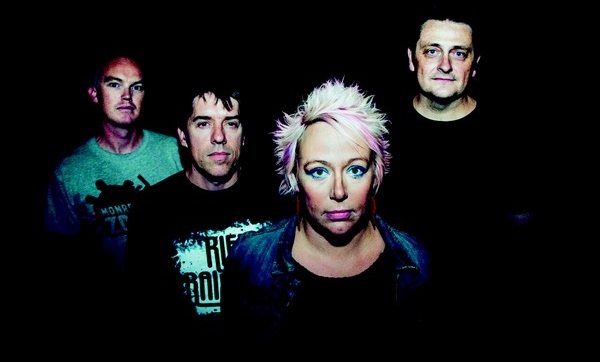“Hard rock can be generalised to not have a lot of dynamics and groove, but there’s actually a lot out there that is [dynamic],” he says. “So they’re the sort of songs we’re trying to capture. There’s a lot of good riff based music that’s been done that doesn’t always get played live, even by the bands themselves. Everyone knows the Thin Lizzy song The Boys Are Back In Town, but they’ve got heaps of other killer songs too that haven’t been overplayed. So we pull a few of those out.”
In a certain respect, good riffs are both a blessing and a curse. When you’ve got a strong, memorable riff, finding an equally effective vocal melody or chorus hook can be particularly difficult. The likes of Wolfmother or Audioslave come to mind as acts who’ve suffered in this regard. But a Riff Raiders gig puts the spotlight on bands who’ve employed riffs in the context of quality songwriting.
“I think [riffs] should come and go,” Powell says. “They can be the hook – exactly that. There’s famous bands that have absolutely got that right. A more recent example would definitely be Muse and probably The White Stripes.”
When it comes to the secrets of a great riff, there are no definitive answers. Riffs don’t have to be tricky to be effective. In fact, some of rock music’s most timeless killer riffs are rooted in simplicity (think You Really Got Me or Roadhouse Blues). But on the other hand, a painfully difficult riff can also be stunning.
“You don’t always have to be a brilliant guitar player,” Powell agrees. “Someone like Jack White, he’s obviously exciting and when I hear him you just want to pick up a guitar and play. But then you have guys like Jimmy Page or Ritchie Blackmore. They have a lot more technique, but they can pull it back and have really catchy simple riffs and then absolutely slam through major hammer-on guitar solos when they’re needed.”
While riffs have always figured prominently in rock music, the 1970s was the apex of riff-centric songwriting. Accordingly, the majority of the Riff Raiders setlist is focused on the ‘70s, but they do take a look at riff evolution through the eras.
“We do the Yardbirds and Pretty Things and an Australian band called Zoot,” Powell says. “They’re ‘60s riffs, which is a bit of a different approach. In the noughties, we’re looking around at bands like White Stripes, Muse and The Darkness. But once again, not the obvious songs.”
When you think of enduring riffs, not many from the last decade spring to mind. A band like The Darkness are a lot of fun, but their whole shtick relies on aping an earlier style. Thus the question looms, is there hope for the birth of brand new dazzling rock riffs?
“I think the more rock music you’ve absorbed, you do see it starting to eat itself,” Powell says. “Some people have said to me ‘Why aren’t you writing your own stuff?’ I thought, well it’s not a bad thing to look back and see this massive catalogue that’s there. People go and watch jazz bands and orchestras that haven’t written what they’re playing and people enjoy that. That’s the idea with this band.
“We’re getting quite good reactions,” he adds. “People saying ‘I didn’t know they had songs like that,’ and they go off and find it for themselves, which is really good. We do 90 minutes sometimes and people still ask for more.”
BY AUGUSTUS WELBY







